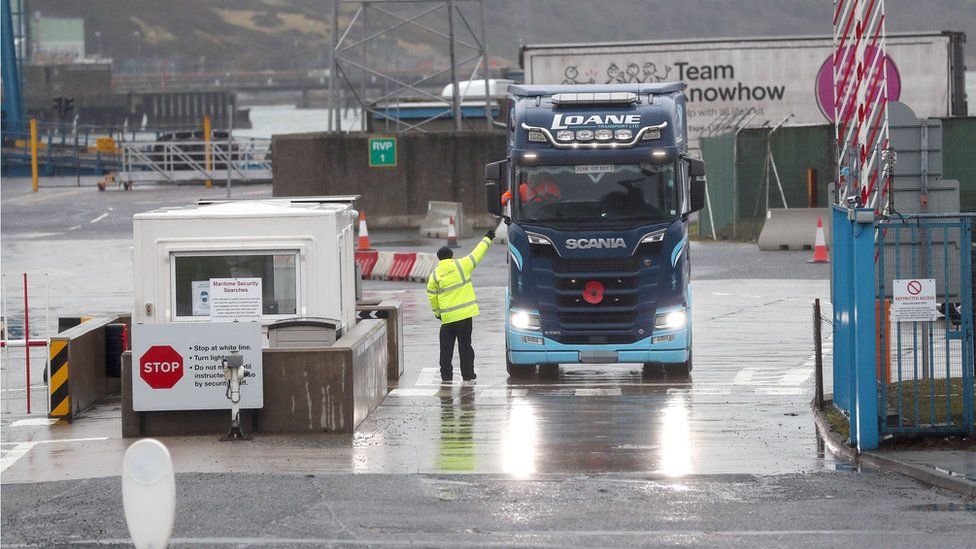According to a recent analysis of international trade in Ireland and Northern Ireland, the importance of trade across the Irish border has increased since Brexit.
The Economic and Social Research Institute (ESRI) conducted the analysis.
Since Brexit, changes in the way that trade data is recorded have made it possible to compare the trade structures of the two economies more consistently.
The study is limited by the fact that NI to GB trade is not recorded similarly to an internal UK sale.
According to some earlier studies, trade between Ireland and Northern Ireland was lower than what economic models predicted it should have been.
The Dublin-based ESRI study, however, revealed that since Brexit, this position has changed.
The size and physical distance between markets are what primarily determine how much trade in goods occurs.
More trade integration between Ireland and Northern Ireland "than can be accounted for by these fundamental economic characteristics," according to the ESRI study.
"This is in contrast to previous research findings on this topic, which showed cross-border trade below levels predicted by similar models," it added. The difference in effect is probably due to the sharp increase in cross-border trade since Brexit.
The study also discovered that border trade involves a much wider variety of goods than the highly concentrated nature of wider international trade in both economies.
The pharmaceutical industry is particularly concentrated in Ireland.
Over 55% of Irish exports and 20% of all imports come from the chemicals and pharmaceutical sector.







